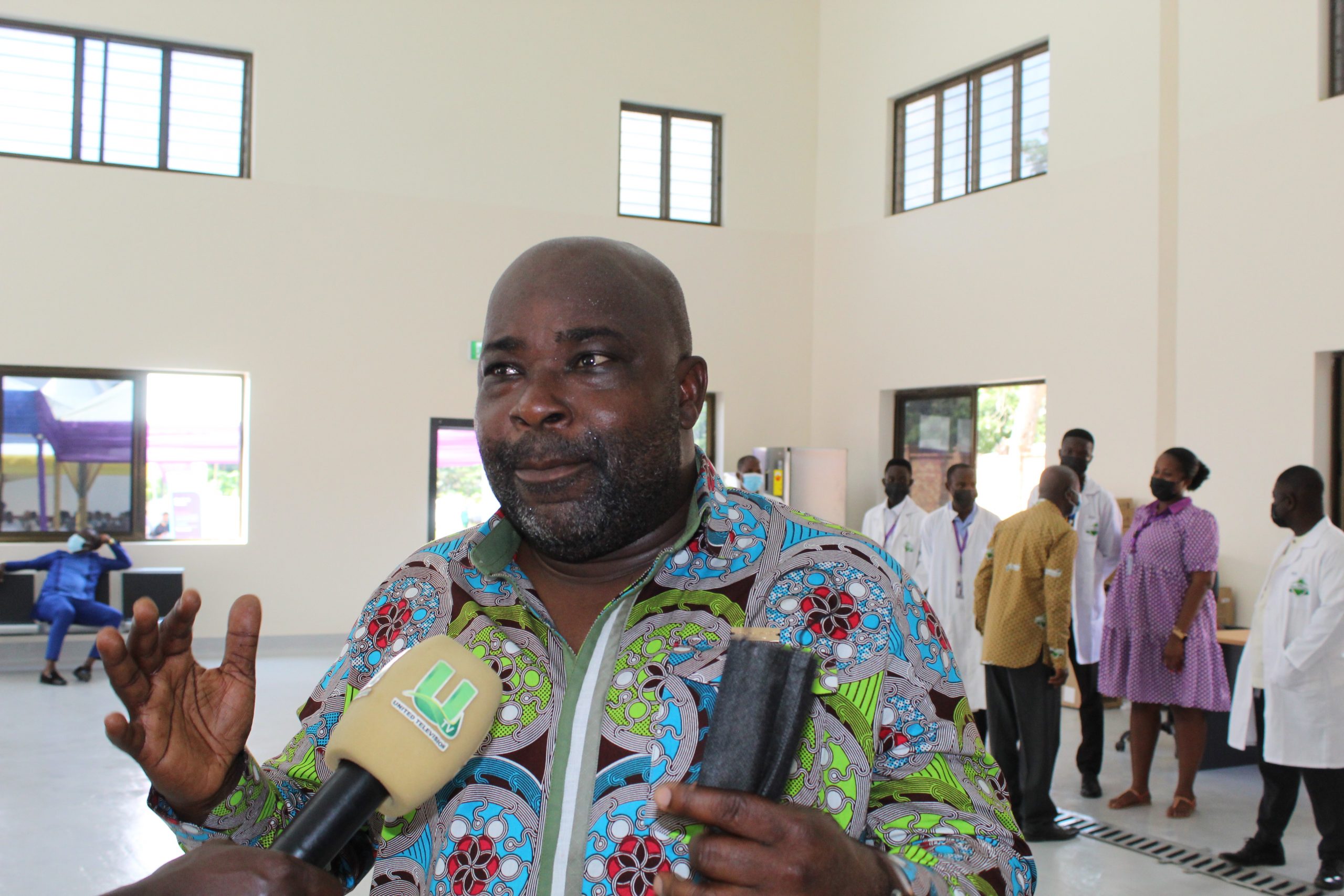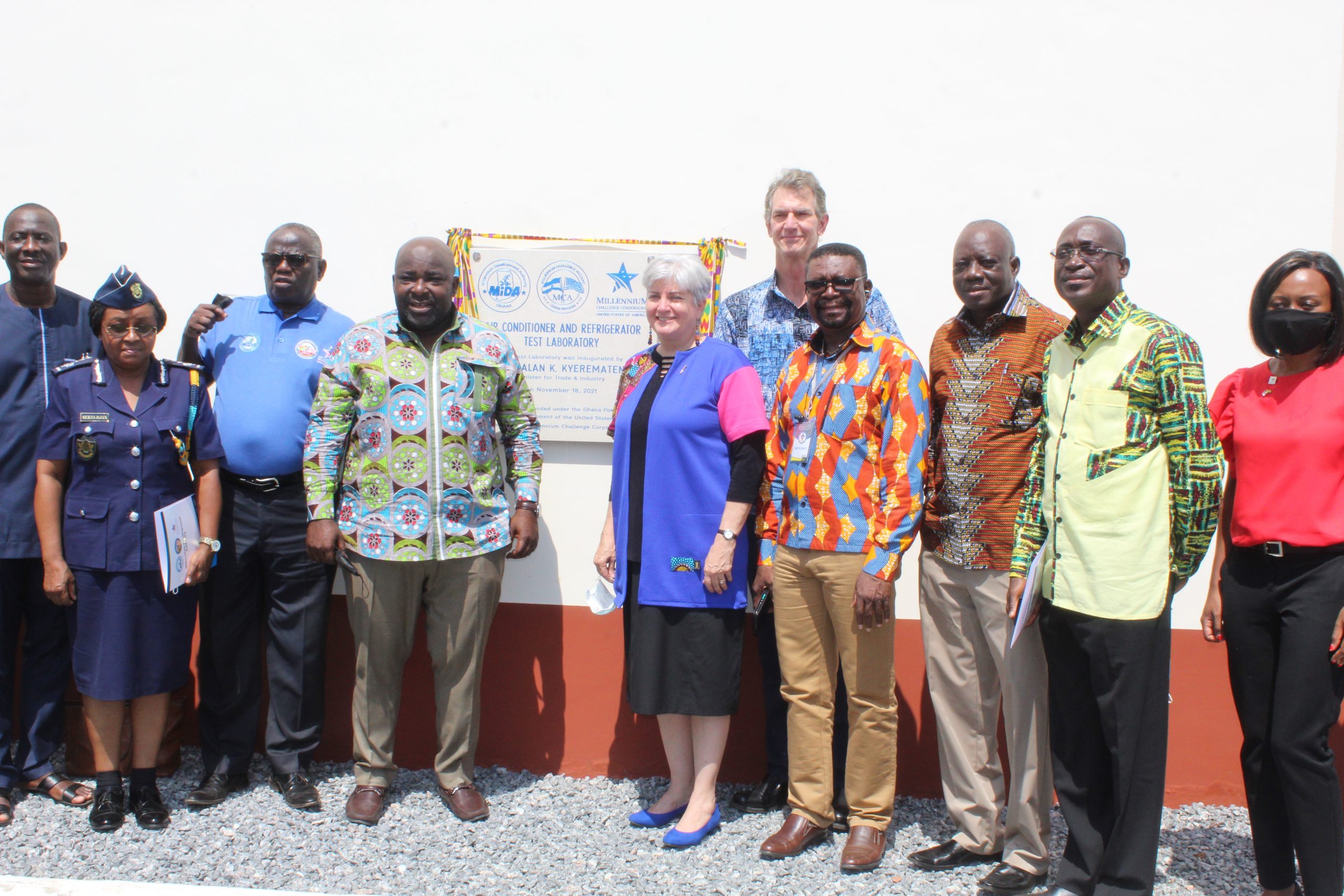The Millennium Development Authority (MiDA), the agency responsible for the implementation of the Ghana Power Compact II, has commissioned the first-ever Air-conditioner and Refrigerator (AC) Test Laboratory facility for the Ghana Standard Authority in Accra, capital of Ghana.
The US$1.88 million facilities were constructed as part of activities under the Energy Efficiency and Demand Side Management (EEDSM) Project, one of four major projects which make up the US$316 million Ghana Power Compact Programme.
Air-Conditioners and Refrigeration appliances are high energy-consuming appliances, therefore, the establishment of the Test Laboratory will support Ghana’s energy efficiency agenda.
The facility will enable the Ghana Standards Authority to test and ensure that all air conditioners and refrigerators imported into Ghana meet the Minimum Energy Performance Standard (MEPS) set out in the Energy Commission’s Energy Efficiency Regulations.
The facility will also aid the effectiveness of the current Energy Efficiency Appliance Standards and Labelling regime being undertaken by the Energy Commission.
Commissioning the facility, Chairperson of MiDA Board, Prof Yaa Ntiamoa-Baidu acknowledged the Ghana Standard Authority for contributing US$45,000 towards the construction of the facility.
She said MiDA accepted a request by the GSA, following the completion of the facility and, therefore, provided a 400KVA standby generator set and a dedicated transformer which would provide backup power to the Test Laboratory and ensure uninterrupted electricity supply at all times.
She commended the Millennium Challenge Corporation (MCC), a United States agency, for providing funding for the facility and the contractor, GHS, as well as Energy Commission, ECG and EPA for their contributions.
The Deputy Director for Trade and Industry, Michael Okyere Baafi said the state-of-the-art facility, comprising an air conditioner test containment building and the testing laboratory, is the first of its kind in Ghana and the West Africa sub-region.

He said it can test 96 air conditioners and 48 refrigeration appliances annually.
“It will also ensure that appliances meet a minimum efficiency performance standard and contribute to the efficient use of electricity. It will further enable GSA to conduct tests and ensure that air conditioners and refrigerators imported into Ghana meet the Minimum Energy Performance Standards (MEPS) as per the Energy Commission’s Energy Efficiency Regulations,” he added.
He continued that the Test Laboratory is equipped with a Balanced Ambient Room Calorimeter (BARC) Test Chamber for evaluation of the capacity and performance of Room Ambient Calorimeters (RACs), which makes it compliant with the ISO 5151 Standards, thereby, further enhancing their capacity to promote standardization and energy efficiency within the sector.

“Facilities such as this creates new jobs and I expect the GSA to attract the best talent within Ghana to run this facility so that it can be profit-making in the shortest possible time. This project can offer services to other countries in the sub-region so that the GSA will make enough profit to build additional facilities,” he underscored.
He concluded that “I am happy this inauguration is happening at the time that the GSA is re-tooling and repositioning itself in the sub-region and Africa as a leader in the field with a mission to contribute towards the growth of industry, consumer protection, and trade facilitation through standardization, metrology, and conformity assessment.”

The US Ambassador to Ghana, Stephanie Sullivan said: “With this laboratory, Ghana can become a regional gateway for importing appliances that can be tested and certified domestically for meeting quality standards.”

This Laboratory will expand the capacity of the Ghana Standards Authority and the Energy Commission to assess the energy performance of appliances like air conditioners and refrigerators imported to Ghana.
“It will help ensure high energy-consuming electrical appliances meet the Energy Commission’s standards and support Ghana’s National Appliance Standards and Labeling Systems Programme,” she added.

Source: https://energynewsafrica.com














